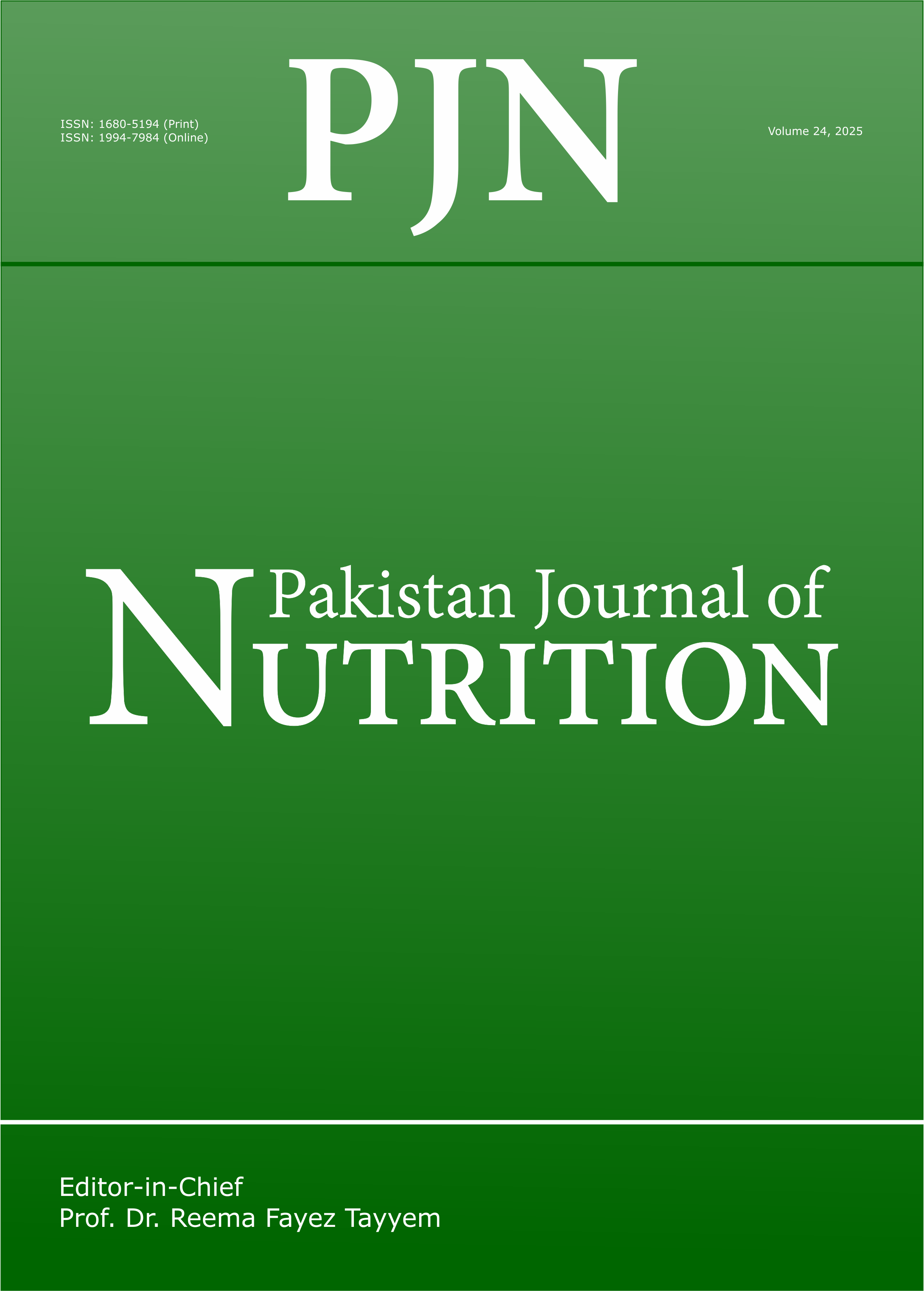Factors Associated with Breast feeding as Well as the Nutritional Status of Infants (0-12) Months: An Epidemiological Study in Yaounde, Cameroon
DOI:
https://doi.org/10.3923/pjn.2007.259.263Keywords:
Breast feeding, malnutrition, Nutritional statusAbstract
Breast feeding is highly recommended as the mode of nutrition of choice for newborn babies as well as infants. This study investigated some of the factors that affect Breast feeding, and how these factors consequently affect the nutritional status of children between the ages of 0 and 1 year. One hundred and seventy one mothers were randomly selected and interviewed in the course of an immunization campaign. After interviewing, anthropometric measures for the infants were collected. Ninety eight percent of mothers breast fed their children (26 percent exclusively on breast milk, 72 percent in combination with other foods-complementary feeding); the 2 percent of mothers who did not breast-feed heir children, cited lack of milk flow or the infant`s refusal to suckle as the main reason. Malnutrition was observed in 18.525 of children on complementary feeding, compared to 14.61 percent in breast fed infants. Malnutrition was related to the other`s age, level of literacy, knowledge of nutrition as well as working status. The length of time for which the mother breast fed was significantly related (P< 0.01) to mother`s working status as well as level of literacy, while the mode of feeding of choice was associated (P< 0.01) to mother`s nutritional knowledge.
Downloads
Published
Issue
Section
License
Copyright (c) 2007 Asian Network for Scientific Information

This work is licensed under a Creative Commons Attribution 4.0 International License.
This is an open access article distributed under the terms of the Creative Commons Attribution License, which permits unrestricted use, distribution and reproduction in any medium, provided the original author and source are credited.

